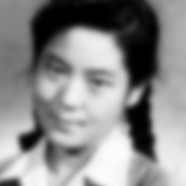Dissertation Reviews has posted Li Guo‘s “Talking Shop” article “The Promise and Perils of Feminist Criticism in Chinese Studies.” Here’s how it begins:
A few days ago, I was chatting with a colleague on the subject of reading Peacocks Flying Southeast 孔 雀東南飛 (1935), a tragedy about love and marriage in a feudal family, written by a female playwright Yuan Changying 袁昌英 (1894-1973). “I guess I am not a good critical reader,” I said. “Why so?” my colleague asked. “I read with too much sympathy,” was my response. This seemingly small topic subsequently triggered a series of discussions on what constitutes ethical readership. Can there be a genuinely compassionate reading that does not exclude reason, a self-reflexive sympathy that embraces a critical stance and actively negotiates the axes of differences in gender, sexuality, and social class? As a feminist researcher with a scholarly interest in late imperial and modern Chinese women’s writings, I found myself preoccupied with the following questions: While working with historical and contemporary women authors who endeavor to deliver their inner feelings through sincere self-portrayal, can a researcher of such topics succeed in locating himself/herself in a socio-historical situation of sincerity? How do we re-assess the researcher’s role? Is it that of a competent agent maintaining an ethical understanding of their objects of study, or is the researcher one who stands in a responsible relationship with authors in the past? Can an ethical researcher maintain a simultaneously critical and sympathetic stance as a reader?
Click here for the whole piece.



 Dissertation Reviews
Dissertation Reviews